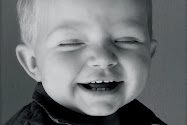So, as Jethro is coming upon an important fork in the road of schooling here in Switzerland, I thought I would explain a bit (as much as I know) about how schooling goes down here. This is what I have learned from my Muki Deutsch class and from talking to Beat and Kathrin, my friends in the ward who are teachers. And most everywhere is different, so this is just how it works for right here, in my town, in canton Bern.
Starting at 5 years old, you go to Kindergarten for two years. My teacher said this used to be optional, but recently it was made a requirement. Kindergarten, I think I've said before, isn't about learning letters or numbers or anything like that. You go and play with marble runs and blocks and paint pictures and play outside and go to the forest and eat Znüni (a morning snack) and make lanterns for lantern parades, etc. There are a few little worksheets I am given at the end of the year about shapes or matching or practicing following dotted lines, but there's not much of that.
When you're seven you go to 1 Klasse - first grade, and you start learning the alphabet and numbers and things. But they still do a lot of fun things and birthday celebrations and everything.
Second grade when you're 8, third, when you're 9. In third grade you begin learning French. In 4th grade you usually have your Landschulwoche, which means you go with your teachers and class somewhere in the mountains for a week. Pictures from when Jethro went are here.
Here is Hazel's schedule. NMM is Natur Mensch Mitwelt, which is basically Social Studies/Science. Gestalten is like sewing and knitting and those types of crafts and things, and Zeichnen is Art.
So in 5th grade (age 11), you're supposedly supposed to begin Englisch, but it has not happened here in our school. In this grade I hear normally the class goes to ski camp, but they did not do that here either, although Hazel did go last year (3rd grade) for just one day. (Sorry these pictures are abominable, as I took them in the evening with lights on instead of during the bright daylight, but I'm just going to post them anyway.)
So, if you don't have the grades (or intentions) for Spez Sek, you just go to Sek (Sekondar). And if you have grades of roughly 4s, you go to Real. If you're in Real, then in your 7th grade you do a lot of looking into different careers and narrowing down what interests you. Then in 8th and 9th grades you do a lot of schnuppern, which literally translates to 'sniffing' but in actuality means shadowing. So that by the end, you start your Berufslehre, or Apprenticeship. Usually then you go to on-the-job training for 3 days and more regular school for 2, or vice versa, not sure which.
In case I've lost you, here is how Wikipedia puts it:
At the end of primary school (or at the beginning of secondary school), pupils are separated according to their capacities and career-intentions in several (often three) sections. Students who aspire to an academic career enter high schools (named "Gymnasium" or "Kantonsschule") to be prepared for further studies and the matura (normally obtained after 12 or 13 years of school at the age of 18/19) Students intending to pursue a trade or vocation complete only three additional years before entering Vocational Educations which are regulated by federal law and are based on a cooperation of private business offering educational job-positions and public schools offering obligatory school-lessons complementary to the on the job-education. This so-called "dual system" splitting academic and vocational training has its continuation in the higher education system. While the academic training leads to the matura and free admission to Universities, successfully completed vocational education give access to third level of practical education, the Fachhochschule.So anyway, the thing that kills me here, is there is not too much chance of someone switching from one track to another, meaning once you're on the Real track, you don't go to the university-bound track. There is a bit more opportunity for that now, more so than there was some years ago, according to my friends, but even still-- isn't it so unbelievable that by the time you're about 12 you've got to be making choices that determine your life's path? I realize that most of the time this will naturally work out, but what about for the kids that are crazy hyper or lazy as kids, but will have grown out of this by the time they're college-aged? On the other hand, Switzerland's workers, i.e. plumbers, painters, etc., all know their jobs very very well.
So this has been on my mind because Jethro is supposed to find out I think in January whether he will be going to Spez Sek or just Sek next year. The thing is, although the kid is reallysmart, his grades aren't always 5.5's and 6's. So I think he'll be one of those close calls. The kids that want to go to Spez Sek are expected to do extra work, like if a teacher assigns the first homework, he might say 'do the first 10 problems' and then those that are hoping for Spez Sek will do the whole page.
So I was talking to my friend Kathrin and Beat today after church, because they teach 5th and 6th grade, so they have a lot of experience with this decision and they said it's the hardest thing in teaching. Then Beat qualified that with, "It's the hardest thing when the parents don't agree with you." So they were telling me if I was concerned and really want Jethro to get put into Spez Sek I should call and talk with them now and let them know that those are my wishes. Because it can certainly influence them. So I would do that, except the thing is even if we are here next year, we won't be here forever, so I don't know how important it is. Not so very, I'd say. HOWEVER, I kind of feel like it is a bit... like I will feel a bit bad if Jethro doesn't get assigned to Spez Sek, even knowing that it's not "real" so to speak. Oh well, we shall see.
And now you are in the know about Swiss schooling.









2 comments:
Totally interesting. Austria is fairly similar. Kids go to the local Volkschule and then have to apply for middle or high schools. There seems to be more choice involved - there are middle schools for art or science or trade schools, plus general ones that are university bound. The high achieving schools get to be more selective, and there is always space in others.
I like the emphasis in trades - there seems to be some real pride in being a house painter or carpenter - and I like that. It seems like nearly everyone graduates with a real skill or the capacity to be successful in University. Kids get grouped by ability and interest, and as a teacher that would make creating lesson plans easier.
On the other hand, this system makes it tough for late bloomers. I doubt my husband would be getting a PhD in physics under this system (he goofed off too much in school, even though he was bright). I also wonder what would happen if you were a genius in one area (say, math) and hopeless in another (Languages) where they would put you.
Still. Very very interesting.
Very interesting and useful post!
Post a Comment